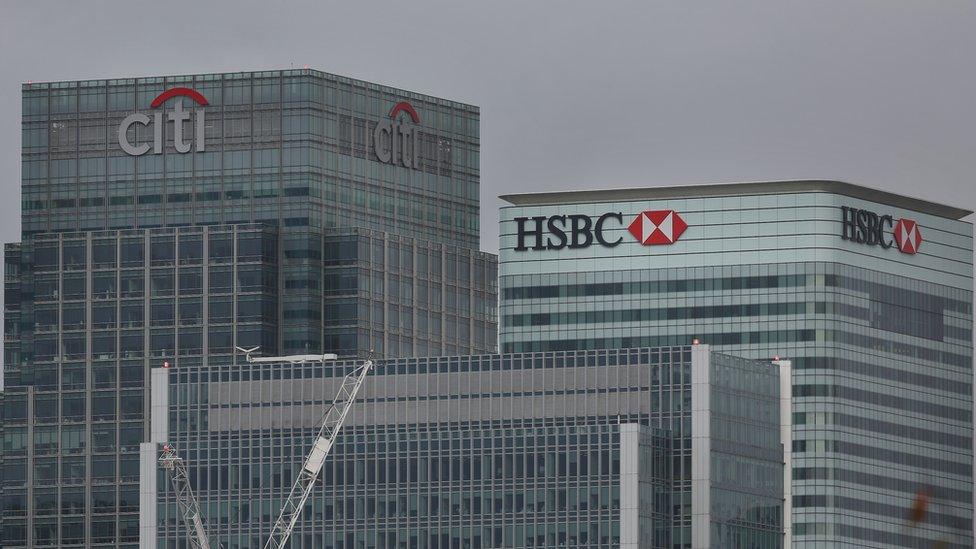What is an EU 'bank passport'?
- Published

UK-based banks may get reduced access to the EU
There has been a succession of warnings for the UK from European officials in the aftermath of the referendum.
Among them, suggestions that British banks can expect reduced access to the market for financial services in the remaining 27 EU states.
The Bank of France governor, Francois Villeroy de Galhau, said they won't be able to use what's called the banking passport system unless Britain signs up to all the rules of the single market.
As those rules include free movement of workers it would be politically challenging for the British government negotiating the post-exit relationship.
So what is it that the British banks might lose?
Banks and other financial companies can be authorised to do business in one member state of the EU, or the slightly wider European Economic Area (EEA), and then ply their trade across the region without having to be separately authorised in each country.
The EEA is a grouping made up of the EU, plus Norway, Iceland and Liechtenstein who have access to the EU's single market.
A bank using this system can provide services by offering them from its home base to a customer in another country, or it can establish a branch abroad.
It is widely used by financial firms (not just banks) in the EU. It is also used by companies from outside the EEA, such as Switzerland and the US.
They establish themselves in one place in the EU, typically in London as the continent's dominant financial centre, and use that as their headquarters for selling services across the single market.
If the banking passport is no longer available to British-based firms, then some operations would clearly have to shift to a location inside the EEA.
What is impossible to judge is just how much business, and how many jobs, would be affected. Would any shift be narrowly focused on those functions serving EEA customers? Or would firms find it more cost-effective to move other parts of the business as well?
There's also a view that lighter regulation of the city would be possible outside the EU and that would stimulate further growth in the financial sector. That could in turn offset any jobs and business that might be lost if the passport option is removed for operations based in the UK.
'Envious eye'
In principle, it is possible that even if the UK ends up outside the EEA, the exit deal might allow for passporting for financial firms.
Leave campaigns have argued all along that Britain is such an important market to the rest of the EU, that they would have an incentive to negotiate a deal that's favourable to the UK. That could, perhaps, apply to the financial services elements of any agreement.
On the other hand, the post-referendum comments coming from European officials have not been encouraging. Some have suggested their negotiating position will be tough, in order to discourage euro scepticism in other countries.
Some of those unpromising comments have referred specifically to financial services - the French central bank governor and the Dutch Finance Minister, Jeroen Dijsselbloem, for example.
And the rest of Europe has long cast a rather envious eye over London's thriving financial centre. They would like some of that business for themselves. Frankfurt, Paris, Amsterdam and Dublin are all significant financial centres, albeit far smaller than London.
- Published25 June 2016
